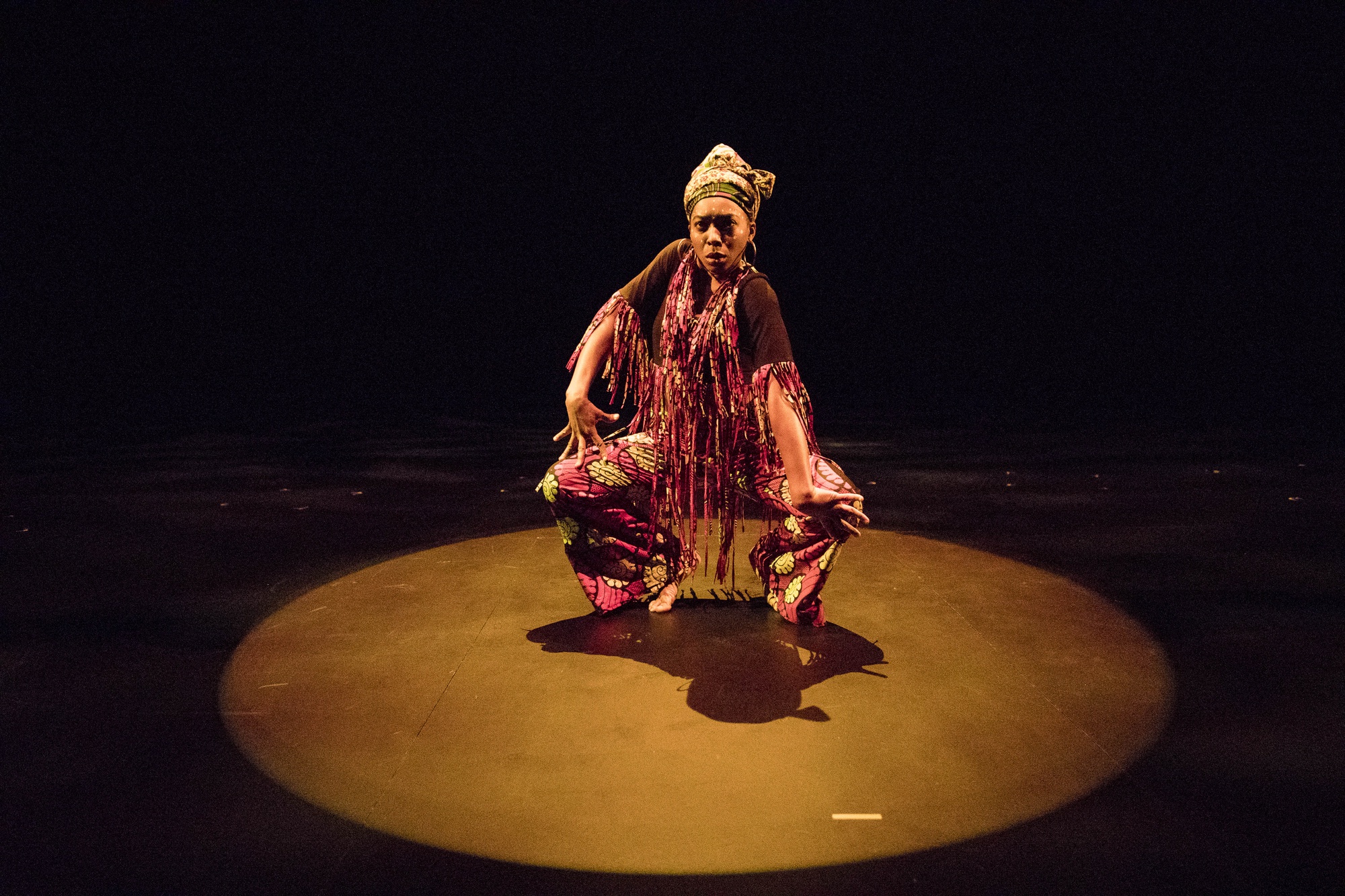
News
Harvard Researchers Develop AI-Driven Framework To Study Social Interactions, A Step Forward for Autism Research

News
Harvard Innovation Labs Announces 25 President’s Innovation Challenge Finalists

News
Graduate Student Council To Vote on Meeting Attendance Policy

News
Pop Hits and Politics: At Yardfest, Students Dance to Bedingfield and a Student Band Condemns Trump

News
Billionaire Investor Gerald Chan Under Scrutiny for Neglect of Historic Harvard Square Theater
‘HEAR WORD!’: An Empowering Reflection on Women and Nigeria

The A.R.T.’s new show “HEAR WORD! Naija Woman Talk True” premiered Jan. 31 at the Loeb Drama Center to the sound of pounding drums. It seems almost incredulous to think that such a riveting show took three years to make its way to Cambridge after members of the Harvard Center for African Studies first saw it in Lagos. The show has a short run, closing on Feb. 11. But it manages to pack heavy emotion, incredible music, and acting all into one performance.
Written by the brilliant Nigerian writer and director Ifeoma Fafunwa and featuring a stellar cast of ten Nigerian actresses supported by three percussionists, this production seeks to share the experiences of Nigerian women of all ages. It dives straight into their struggles with relationships and gender identity through a series of vignettes delivered through monologues, dancing, and singing. What makes this show so cohesive is not only its powerful feminist message, but also its ability to balance comedy and tragedy as it transports its audience through vivid and often painful to watch scenes.
The set itself is plain. The musicians sit at their various drums on the sidelines as the actresses move on and off the stage to deliver their stories. The stories are told in retrospective under a single, bright spotlight, inviting the audience directly into the narrative. The actors dress in traditional Nigerian dresses and turbans paired with glinting hoops and jewelry. Each vignette lasts about ten minutes and is accompanied by drumming and metallic clicks, which at times mimic sounds like a phone ping from the story, but also serve to create an ominous feeling.
The script is simple and direct, a confession that often plays with poetic language chock full of Nigerian colloquialisms. Fafunwa does not hold back on her subjects, addressing themes like marital abuse, rape, sexual harassment in the workforce, underage pregnancy, widow confinement, and sex. Each topic addresses various viewpoints as the stories encompass all ages and experiences. For example, the scene “My Daughter-In-Law” delivers an anachronistic view of a woman’s role in the household. It is told from the perspective of a woman frustrated with her daughter-in-law, who refuses to believe that her place is in the kitchen. In “George,” a young university student gives the audience a distressing account of her rape.
One of the best scenes of the show, “Azuka & Temilola,” captures the humor and empathy that characterizes the overall production. It centers on two mothers holding a one-sided conversation with their daughters. One woman is a traditional Nigerian mother while the other is a Nigerian mother who has immigrated to London. Despite these cultural differences, they both critique their young daughters’ single lives. Actresses Joke Silva and Elvina Ibru are fantastic in their roles, perfectly delivering the excessive personalities of women desperate to marry off their girls.
The show’s strengths also lie in its ability to address the pain of abuse and harassment. One such scene, “Dodo,” recounts a young teenager’s experiences with molestation by her aunt’s fiancée and the silence enforced by her own unsympathetic family. Odenike beautifully portrays the girl’s youth and anger after she is molested. She struggles with processing her experience into words. Aside from the agony, bubbling bouts of humor are carefully weaved in. It touts the line between these two emotions very finely. The ability to achieve this balance so flawlessly is due to the masterful script and to the actresses who handle the conflicting feelings with care.
More than ever, works like these about women that recount both horrible and empowering experiences must be shared. It seems that these kinds of conversations are gaining more traction—and they should. We should especially remember Fafunwa’s influential words now more than ever: “The glory of our nation will rise if we utilize the energy we use to oppress women / To uplift, embrace and help one another grow.”
—Staff writer Aline G. Damas can be reached at aline.damas@thecrimson.com.
Want to keep up with breaking news? Subscribe to our email newsletter.
From Our Advertisers

Over 300+ courses at prestigious colleges and universities in the US and UK are at your disposal.

Where you should have gotten your protein since 1998.

Serve as a proctor for Harvard Summer School (HSS) students, either in the Secondary School Program (SSP), General Program (GP), or Pre-College Program.

With an increasingly competitive Law School admissions process, it's important to understand what makes an applicant stand out.

Welcome to your one-stop gifting destination for men and women—it's like your neighborhood holiday shop, but way cooler.

HUSL seeks to create and empower a community of students who are seeking pathways into the Sports Business Industry.
